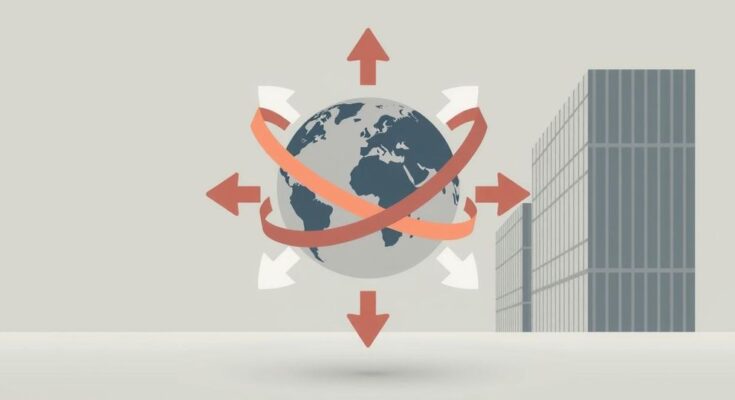In recent political discourse, tariffs have been labeled positively by some, including former President Donald Trump, who famously called them the “most beautiful word in the dictionary.” However, according to Brown University economist Şebnem Kalemli-Özcan, tariffs are perceived quite differently in the economic community. She states that tariffs are generally detrimental, predicting they could harm the U.S. economy significantly.
Kalemli-Özcan defines a tariff as a government-imposed tax on goods from other countries, which leads to increased costs for consumers. “Research has shown that consumers ultimately pay” for these tariffs. When tariffs make imported goods pricier, companies will likely pass those costs on to consumers, resulting in higher prices across the board. This practice can either lead consumers to spend less or seek out American-made alternatives, which can also see price hikes.
The economist argues that while tariffs aim to promote U.S. products, they do little to benefit consumers without accompanying industrial policies. Americans generally favor foreign goods for their affordability and quality. “If you make all these foreign goods more expensive, without ensuring American products are of equal or better quality at lower costs, you face inflationary challenges,” she cautions.
Regarding specific tariffs, Kalemli-Özcan highlights the severe implications of a 25% tariff on imports from Canada and Mexico, stressing that it could cause economic contraction by decreasing consumer spending and business investment, potentially leading to job losses. Furthermore, she notes that even a 10% tariff on Chinese imports could raise consumer prices, though its overall economic impact might be less severe than a more drastic tariff.
Historically, tariffs were used for protectionist measures, as seen with the Smoot-Hawley Tariff Act of 1930. Although tariffs have waned in favor since WWII due to globalization, recent administrations have shifted towards imposing tariffs as political leverage. In this context, Kalemli-Özcan emphasizes that consumers have limited options: they can brace for higher costs, look for alternatives, or reduce spending, ultimately contributing to a sluggish economy.
According to Şebnem Kalemli-Özcan, tariffs may appear beneficial but ultimately harm American consumers by raising prices and job losses. A 25% tariff on imports from Canada and Mexico could reduce consumer spending, triggering economic contraction. Tariffs should be paired with policies to support U.S. manufacturing to mitigate inflationary effects.
Tariffs, while politically charged, bear significant economic consequences for American consumers and industries. Economists like Şebnem Kalemli-Özcan foresee negative impacts—including higher prices and potential job losses—if tariffs continue to rise. Without proper support to promote local manufacturing, consumers are left shouldering the economic burden as prices escalate and spending declines.
Original Source: www.brown.edu



